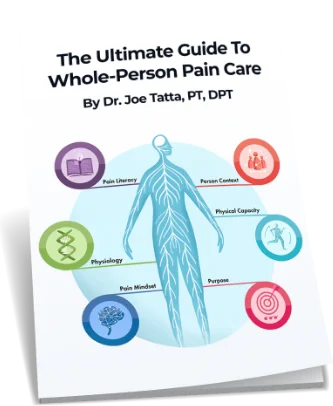A Pain Exposure Protocol
Move patients from fear and avoidance to awareness and acceptance using experiential exercises, movement, and values-based living.
Register NowCourse Description
Pain itself has no behavior. What we call pain is mostly resistance and avoidance behavior of pain. In this 5-week online course, you will learn how to perform a behavior analysis on the Lifeline, identify pain resistance and patterns of reactions/avoidance. ACT processes such as acceptance (exposure), defusion and self-as-context will be applied to help your clients openly and non-judgmentally approach and explore the pain phenomena. People with chronic pain need to be able to take the perspective of a curious researcher of their pain. Practicing ‘self as context’ is probably one of the most effective ways to ‘control’ the pain experience. This is a hand’s on course full of practical tools and experiential exercises you can begin to use in your practice right away. Be ready to study your own pain and experience new ways to open up, explore, and gain ‘control’ in a whole different way. The techniques in this course are used as a first step before graded exposure and/or graded activity and easily implemented into both mental health and physical medicine practice.
Course Overview
Week 1 – Foundations of ACT for Pain
Week 2 – Experiential Bullseye assessment
Week 3 – Experiential compassion and shared perspective
Week 4 – Experiential pain exposure
Week 5 – Experiential behavior analysis on the Lifeline
Week 6 – Live coaching call and Q&A session
Learning Objectives
- Perform a behavior analysis standing/moving on the Lifeline to identify central pain resistant (unwillingness, avoidance) patterns
- Apply the Lifeline and Bullseye for skill training, valued direction and generalization
- Execute pain exposure in a seated position for a client with pain.
- Evaluate the 3 distinct behaviors of experiential avoidance in a patient with chronic stress/pain/control.
- Execute two metaphors during a treatment session with a low back pain patient to address experiential avoidance
- Describe how ACT incorporates elements of exposure to reduce experiential avoidance.
- Execute creative hopelessness, acceptance, and compassion experientially on the Lifeline.
- Perform a “hands-on” compassion-focused and perspective-taking exercise.
- Demonstrate the use of process assessment using physical signs of changes in sympathetic/parasympathetic activity
- Implement exposure of pain using a hands-on technique with minimal languaging
Who Should Take This Course?
This course is for providers who treat pain including:
- Psychologists
- Physical therapists
- Occupational therapists
- Social workers
- Counselors
- Nurses
- Physicians
- Health coaches
Continuing Education Credit
- 20 CEU’s are available for Physical Therapists through the FSBPT
Level: Intermediate, Advanced, Clinical, Research
Components: Conceptual analysis, original data, experiential exercises, didactic presentation, two case presentations, role play, exposure
Instructor Bios:
JoAnne Dahl, PhD
Dr. JoAnne Dahl is a peer reviewed ACT trainer and a professor of psychology at Uppsala University, Sweden. JoAnne is a clinical psychologist specializing in behavior medicine. She is coauthor of the The Art and Science of Valuing in Psychotherapy, Acceptance and Commitment Therapy for Chronic Pain, Living Beyond Your Pain, and ACT and RFT in Relationships. She is also the President of the Pain SIG at the Association for Contextual Behavioral Science, the parent organization of Acceptance and Commitment Therapy.

Joe Tatta, PT, DPT
Dr. Tatta is the Founder of the Integrative Pain Science Institute, a company dedicated to reinventing pain care through education, research and professional training. A unique combination of physical therapist, nutritionist, and ACT trainer, he has 25 years of experience in physical therapy, integrative models of pain care, leadership and private practice innovation. He holds a Doctorate in Physical Therapy, is a Board-Certified Nutrition Specialist and has trained in Acceptance and Commitment Therapy. He is chair of the Physiotherapy SIG at the Association for Contextual Behavioral Science, the parent organization of Acceptance and Commitment Therapy. He also volunteers for the New York Physical Therapy Association Opioid Alternative Task Force. Dr. Tatta is author of the book , Heal Your Pain Now and host of The Healing Pain Podcast.
The Integrative Pain Science Institute is approved by the American Psychological Association to sponsor continuing education for psychologists. The Integrative Pain Science Institute maintains responsibility for this program and its content.
